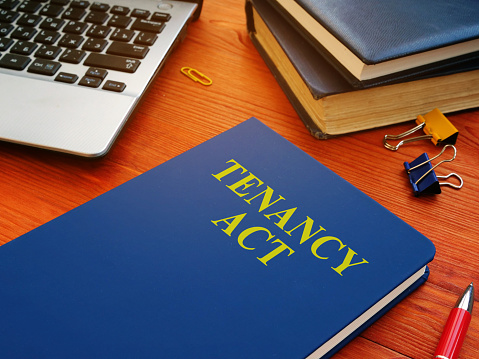As a landlord or a tenant in the Greater Toronto Area (GTA), it is essential to understand your legal rights and obligations provided under the Landlord and Tenant Act of Ontario. The Act was established to protect the rights of both landlords and tenants and provide a clear framework for resolving disputes that may arise between them.
Here is a comprehensive guide to understanding the Landlord Tenant Act in the GTA.
What is the Landlord Tenant Act of Ontario?
The Landlord and Tenant Act, also known as the Residential Tenancies Act of Ontario, governs the relationship between landlords and tenants in Ontario. The act provides guidelines and regulations for both landlords and tenants, ensuring a fair and safe environment for both parties. This Act covers most rental units and the Landlord and Tenant Board (LTB) helps to solve disagreements between landlords and tenants.
What is a Rental Agreement?
A rental agreement, also known as a tenancy agreement or lease, is a legal contract between a landlord and a tenant. The tenant agrees to pay rent to live in the rental unit. A good property management company or independent landlord should follow the landlord-tenant board guidelines and have a standard lease agreement in place.
Information About Rent During New Tenancy
Here are the basic rules that you need to know about rent:
- Both the landlord and tenant agree on the rent amount and services included in the rent for the rental unit during a new tenancy.
- Rent increase is prohibited until at least 12 months have passed since the tenant moved in.
- Landlords have the right to ask for a rent deposit from new tenants before or at the beginning of a new tenancy. The amount of the deposit cannot be more than one month’s rent if the tenant pays monthly or one week’s rent if they pay weekly. The deposit can only be used to pay for the last month or week of rent and cannot be used for any other purpose, including repairs.
- Landlords and tenants usually discuss how the rent will be paid before entering into a rental agreement. Post-dated cheques or automatic payments may be used if agreed upon, but landlords cannot require them. Once a payment method is agreed upon, it cannot be changed without mutual agreement.
- The rent increase guideline, the maximum rent increase a landlord can make without LTB approval, is set annually by the government. Landlords cannot increase the rent by more than the annual guideline set by the government. The guideline amount is 2.5% in Ontario.
- Rent increases beyond the guideline can be applied with LTB approval for specific reasons like a significant increase in municipal taxes and charges, major repairs or renovations, and security services.
- Certain rental properties in Ontario are subject to rent control, while others are not. Properties that were first occupied for residential purposes (e.g. new constructions, building additions, and most new basement apartments) after November 15, 2018, are generally not under rent control, while those occupied before that date are subject to rent control. Tenants should check with the Landlord and Tenant Board or their landlord to find out if their rental property is subject to rent control, as this can affect their rent amount and frequency of rent increases.
- Rent reductions are required when capital expenditure is fully paid or municipal property tax is reduced.
- A tenant can apply for a rent reduction if the landlord removes a service without reducing the rent or fails to keep a promise made in an agreement.
Landlord Responsibilities
A landlord must maintain the rental property in good condition, and follow health, safety, housing, and maintenance standards as set by provincial laws and municipal by-laws. Tenants can approach the LTB if the landlord is not fulfilling their maintenance obligations.
Ontario’s Landlord Tenant Act provides several rights to landlords, including:
- General Rights Related to Rents: Landlords are entitled to certain rights such as requesting personal information in compliance with Ontario’s human rights code, gathering deposits for rent, collecting key deposits, deciding the rental amount, adjusting rent and changing locks.
- Right to Collect Rent: Landlords have the right to collect rent from tenants on time.
- Right to Evict: Landlords have the right to give tenants notice of eviction in case of not paying rent, consistently paying rent late, damaging the property, engaging in illegal activities, disturbing others, not reporting income, overcrowding, etc.
- Right to Enter the Rental Property: Landlords have the right to enter the rental property to make necessary repairs or show the property to potential renters. But there are some important rules that they need to follow about which we’ll speak in a minute.
When Can Landlords Enter the Rental Unit?
Landlords can enter a tenant’s rental unit without written notice:
- in case of emergencies
- if the tenant agrees
They can also enter without written notice between 8 am and 8 pm for cleaning if the rental agreement requires it, or if they have given a notice of termination and want to show the unit to a potential new tenant.
However, if they want to enter for repairs, inspections, viewings, or other reasonable purposes, they must provide 24 hours’ written notice to the tenant, stating the reason and the time of entry. The tenant must receive the notice for the landlord to enter.
Tenant Responsibilities
Tenants must keep their rental unit clean and repair any damages caused by them or their guests, except for normal wear and tear. If the tenant does not repair any damage, the landlord can approach the LTB to order the tenant to pay for repairs or even evict them. Tenants should not withhold rent even if the maintenance is poor or repairs have not been done.
Ontario’s Tenant Act provides several rights to tenants, including:
- Right to a Safe and Clean Environment: Tenants have the right to live in a rental property that meets all safety and health regulations. If a landlord fails to maintain a safe and clean environment, tenants can file a complaint with the Landlord and Tenant Board.
- Right to Privacy: Tenants have the right to privacy in their rental property. Landlords cannot enter the rental property without prior notice, except for some cases mentioned above.
- Right to Quiet Enjoyment: Tenants have the right to peaceful enjoyment of their rental property. Landlords cannot disturb tenants or interfere with their use of the rental property.
- Right to Notice of Rent Increases: Landlords must provide tenants with written notice of any rent increases at least 90 days before the increase takes effect.
Ending a Tenancy
Here are some rules regarding ending a tenancy:
- To end a lease, a tenant can either renew the lease or make a new lease with the landlord for another fixed term period.
- If no new agreement is reached, the tenant can continue to stay on a monthly or weekly basis, but the landlord can increase the rent annually.
- If a tenant wants to leave, they must give their landlord written notice based on the rental period.
- Early termination of a tenancy can be agreed upon orally or in writing without a notice of termination.
- Assigning a tenancy or subletting the rental unit requires landlord approval and they need to have a good reason for refusal. Some tenants are not allowed to assign their tenancy or sublet.
A landlord can only end a tenancy for reasons allowed by the Act, such as the tenant’s conduct or other reasons like requiring the unit for personal use. The landlord must give written notice and follow proper forms, and if the tenant does not move out, the landlord can ask the LTB to end the tenancy by applying. Both parties can explain their side during the hearing.
To conclude, there are many rules and regulations connected to the Landlord Tenant Act. We’ve compiled the most essential steps that you need to follow. If you need more information, don’t hesitate to check Residential Tenancies Act of Ontario.





